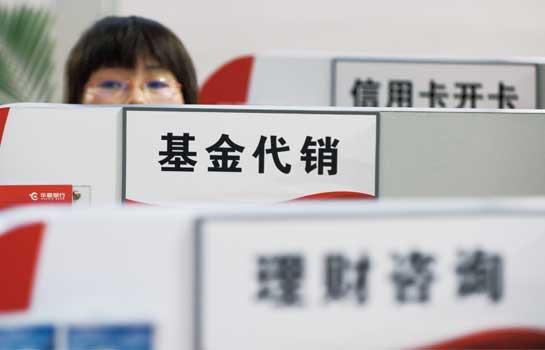
Chinese commercial banks offer revenue of about 7 percent on average for their short-term wealth investment products.
The China Banking Regulatory Commission (CBRC), the nation's banking regulator, on Wednesday moved to solicit opinions on wealth investment management, with clauses aiming to protect investors' interests.
According to a statement on its website, the banking regulator ordered commercial banks to improve the information disclosure system to better inform clients about risks when they buy wealth investment products from banks.
The documents of wealth investment products should include information on investment risks and carry out necessary assessments of clients' ability to endure risks and give anticipated results in a worst-case scenarios.
Chinese commercial banks have lured investors to buy their wealth investment products by touting how profitable they might be.
The assessment of clients' risk-ensuring abilities should be based on their age, financial statements and investment experience, according to the CBRC.
In the statement, the CBRC divided banks' high-end clients into two groups, private banking clients with financial assets of more than 6 million yuan (927,000 U. S. dollars), and high net worth (HNW) clients with a single purchase of wealth investment product of not less than 1 million yuan, a standard that matches the country's most experienced trust clients.
The CBRC's planned tightening of wealth investment products aims to regulate one of the banking industry's most profitable business.
Chinese commercial banks offer revenue of about 7 percent on average for their short-term wealth investment products, a rate far higher than the demand deposits or the benchmark interest rate of one-year deposits, which stood at 3.25 percent.
By the end of the first quarter, commercial banks sold 1.9 trillion yuan of wealth investment products, compared with 1.7 trillion yuan at the end of last year, according to the CBRC.





